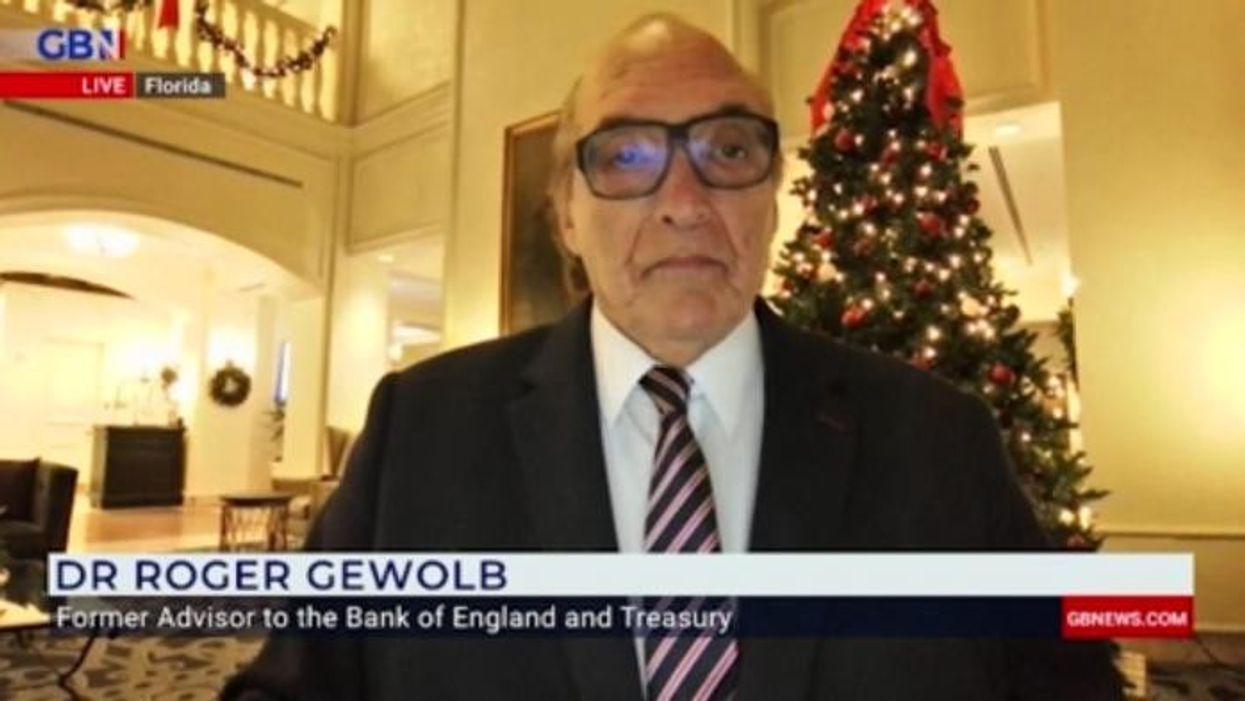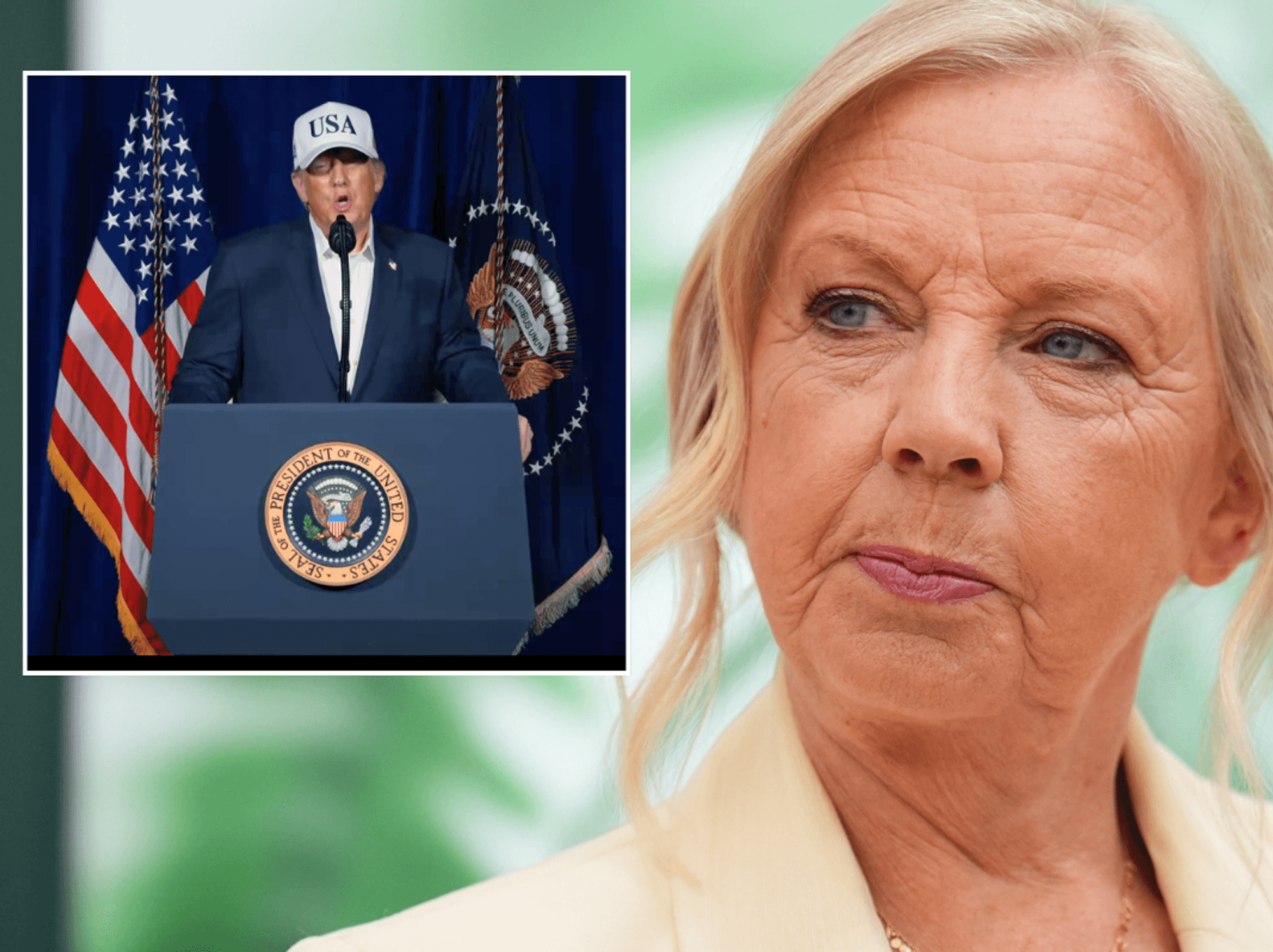Mortgage rates set to plunge after better than expected fall in inflation

Dr Roger Gewolb reacts to inflation figures
|GB NEWS

Today’s CPI inflation figures suggest the economy is improving and interest rates will come down but repayments are likely to go up for many households regardless
Don't Miss
Most Read
Latest
Mortgage rates could fall in a boon for homeowners following a better than expected easing in Consumer Price Index (CPI) inflation today.
Lenders have already slashed rates this week with Barclays offering the cheapest two-year fixed rate, according to Moneyfacts.
Inflation eased to 3.9 per cent for the 12 months to November, down from 4.6 per cent in the previous month, official data published today shows.
It had been a better-than-expected fall, as most economists had been predicting a fall to 4.3 per cent last month.

Mortgage rates are set to plunge but many have high repayments to deal with
|GETTTY
With inflation easing, analysts are expecting the Bank of England to lower interest rates in 2024, which would bring welcome relief to many mortgage holders.
Work and Pensions Secretary Mel Stride said the fall in inflation published today could allow the Bank of England to ease interest rates, helping homeowners struggling with mortgage costs.
He told LBC Radio: “The interesting thing is that this 3.9 per cent is a rather better number than was anticipated – many economists were thinking about 4.3 per cent.
“So it could be that this is coming down a bit faster than many had imagined.
“And I think this is really good news. I think this is a turning point. I think the economy will definitely start to benefit from this.”
He added: “A greater decrease in inflation of course means that monetary policy might be loosened a little bit more quickly than it would otherwise be – in other words, interest rates coming down.
“Those are matters for the independent Bank of England, they are not for me to predict, but if inflation comes down faster than expected, then that does take some pressure off the Bank of England in terms of keeping interest rates higher, which of course in time and in turn feeds into mortgage rates.”
However, some experts are sounding the alarm that the central bank’s policy tightening is being “reversed too slowly” and those coming to an end on their fixed rate deal are likely to be hurt financially.
Tom Stevenson, an investment director for Personal Investing at Fidelity International, thinks the Bank of England has been too cautious in its actions.
He explained: “The Bank of England’s decision to leave rates at a 15-year high of 5.25 percent was made easier by this week’s unexpected 0.3 percent fall in GDP in October.
“That built on other recent signs of weakness in the UK economy, including a slowing in the rate of wage growth and a retreat in the inflation rate from a peak of 11.1 percent to 4.6 percent.
“The Bank of England itself has warned that nearly a million homeowners face a £500 a month mortgage hike by 2026 as fixed rate deals reprice."
As it stands, a fixed-rate deal is the most common type of mortgage in the UK which means millions still face paying more in repayments in the next few months when their lower rate ends.
Many households are facing coming to an end of favourable arrangements with some rates being as low as one percent.
LATEST DEVELOPMENTS:

Interest rates are set to come down which will affect mortgage repayments
|GETTY
The average two-year mortgage is 4.58 percent while the average five-year mortgage is sitting at 4.57 percent, as of December 18.
Fidelity’s investment expert refused to rule out a recession due to the Bank of England’s “lag” in action.
Mr Stevenson added: “While inflation remains above the Bank of England’s two percent target, central banks know that they cannot wait for prices to fall back fully before easing monetary policy.
“The lag between cuts in interest rates and their impact on the economy raises the risk of an unnecessary recession if policy tightening is reversed too slowly.”
The Bank of England’s MPC voted to hold interest rates at 5.25 per cent last week, and is next set to meet regarding interest rates on February 1, 2024.










